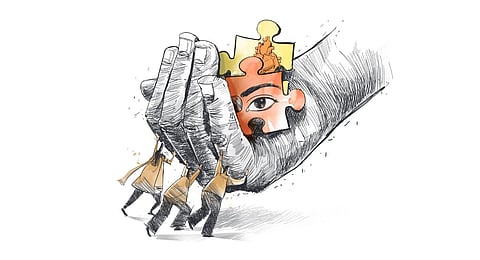

THIRUVANANTHAPURAM/KOCHI: The once-promising deceased organ donation programme, overseen by the Kerala State Organ and Tissue Transplantation Organisation (K-SOTTO), is now mired in controversy, leaving hundreds of impoverished patients in dire need of life-saving organ transplants facing an uncertain future.
As many as 2,158 kidneys, 720 liver and 57 heart patients are currently registered with K-SOTTO for organ transplantation. However, this year has seen a paltry 20 kidney, 11 liver, and four heart transplantations from brain-dead donors, casting a grim shadow on the prospects of patients awaiting organ transplants.
The data indicates a concerning trend: While wealthier patients continue to secure organ transplants through live donors, often from within or outside the state, the deceased donor programme meant to aid the less fortunate has faltered.
“Unrelated organ donation is managed by a well-organised network. Wealthier patients get access to them while poor patients suffer. Unfortunately, the deceased donor programme, which is meant to benefit the poor, is now demonised as organ trade.” said Dr Noble Gracious, executive director of K-SOTTO, on World Organ Donation Day (August 13).
Last year, there were 55 organ transplantations from 14 brain-dead donors, when compared to 1,086 kidney transplantations and 335 liver transplantations from live donors. Of the 8,124 kidney donations from live donors since 2011, 5,648 were from unrelated donors. In the case of liver, it was 96 out of 1,716 donations.
The resulting inequity has raised concerns among health experts, who note that the essence of the government’s initiative has been overshadowed by flourishing unrelated live donations.
Allegations surrounding organ donations have already caused a significant drop in the number of donations from deceased donors. Besides, doctors empanelled by K-SOTTO are refusing to certify brain death for fear of litigation, plunging the programme into a crisis.
One of the prime instigators of the controversy, Kollam-based medical practitioner S Ganapathy is claimed to have prevented over 600 deceased organ donations. However, health experts see it as a loss of opportunity for 2,400 potential patients in need of organ transplantation to lead a normal life. On July 25, the High Court junked Ganapathy’s petition against Aster Medcity and nine doctors for flouting the organ transplantation protocol. Frequent litigations and controversies have further impacted the deceased organ donation programme.
“Ganapathy’s action has led to the flourishing of unrelated live donations. Unwittingly this has led to a boom for people involved in the racket to exploit the poor,” said Dr Easwer H V, professor and head of the Department of Neurosurgery, Sree Chitra Tirunal Institute for Medical Sciences and Technology (SCTIMST). “There is a fear amongst doctors who certify that they will be dragged into legal controversies at some point in time. Many of the people who are empanelled by the government to do the certification are quite wary of doing it,” he added.
Dr Jose Chacko Periappuram, a chief cardiac surgeon at Lisie Hospital and the first to conduct a heart transplant surgery in the state, said controversies and allegations related to deceased donor programmes should be avoided.
“Most of the transplantation procedures in India were conducted in Kerala. We have received appreciation from officials and other states as well. However, following unnecessary controversies and movies like ‘Joseph’, people are reluctant to donate organs. Many lives are now saved in states such as Tamil Nadu and Andhra Pradesh. In Kerala, however, the number has come down significantly,” Dr Jose said.